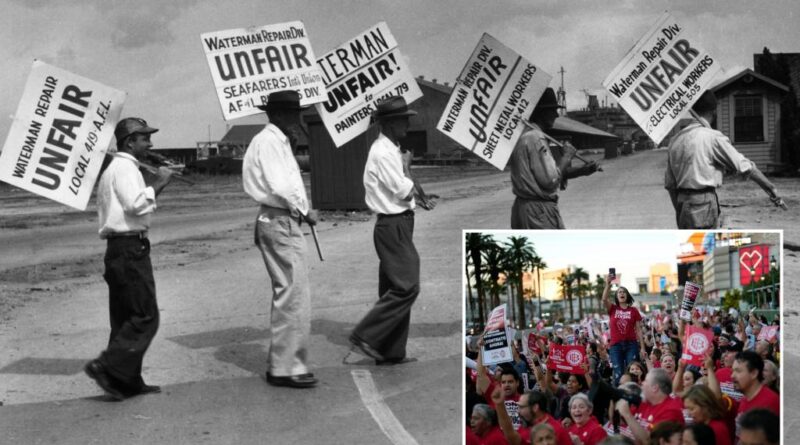Organized labor suffered consequences for supporting illegal migrants

Unions in America in 2024 present a paradox: while approval rates are at their highest since 1965, only 6% of private sector workers are unionized. This underscores the value of collective bargaining to protect workers but also raises questions about the stagnant union membership.
During a visit to Las Vegas, a city known for strong union presence, it became evident how unions protect workers. In Las Vegas, service-industry employees earn a living wage with full benefits, showcasing the American Dream in action.
Ted Pappageorge, secretary-treasurer of the Culinary Union, emphasized the impact of unions on wages and benefits, highlighting how unions force non-union businesses to compete on pay and benefits.
Las Vegas unions have played a vital role in advocating for workers’ rights, even in a right-to-work state. The strict regulations in the highly-regulated gaming industry prevent the employment of illegal migrants, setting Vegas apart from other cities.
Illegal migrants make up a significant portion of the service industry workforce in other parts of the country, impacting wages and competition for legal workers. The presence of a union helps protect Vegas workers from this competition.
Historically, unions favored limiting immigration to protect worker interests. However, a shift in the second half of the 20th century led to unions embracing immigrants, legal and illegal. This shift has raised concerns among American workers about job competition.
While unions improve working conditions, the low union membership in the private sector raises questions about their effectiveness in supporting the working class. Changing the approach to immigration could make unions more appealing to workers.
The post-pandemic labor shortage has highlighted the impact of immigration policies on the labor market. The influx of illegal immigrants has affected job opportunities for American workers, emphasizing the need for a balanced approach to immigration.
The voices of workers need to be heard to address their concerns and prioritize their well-being. It’s time for a reevaluation of policies to ensure the American Dream is accessible to all.
This content is excerpted from the opinion editor of Newsweek’s new book, “Second Class: How the Elites Betrayed America’s Working Men and Women.”



